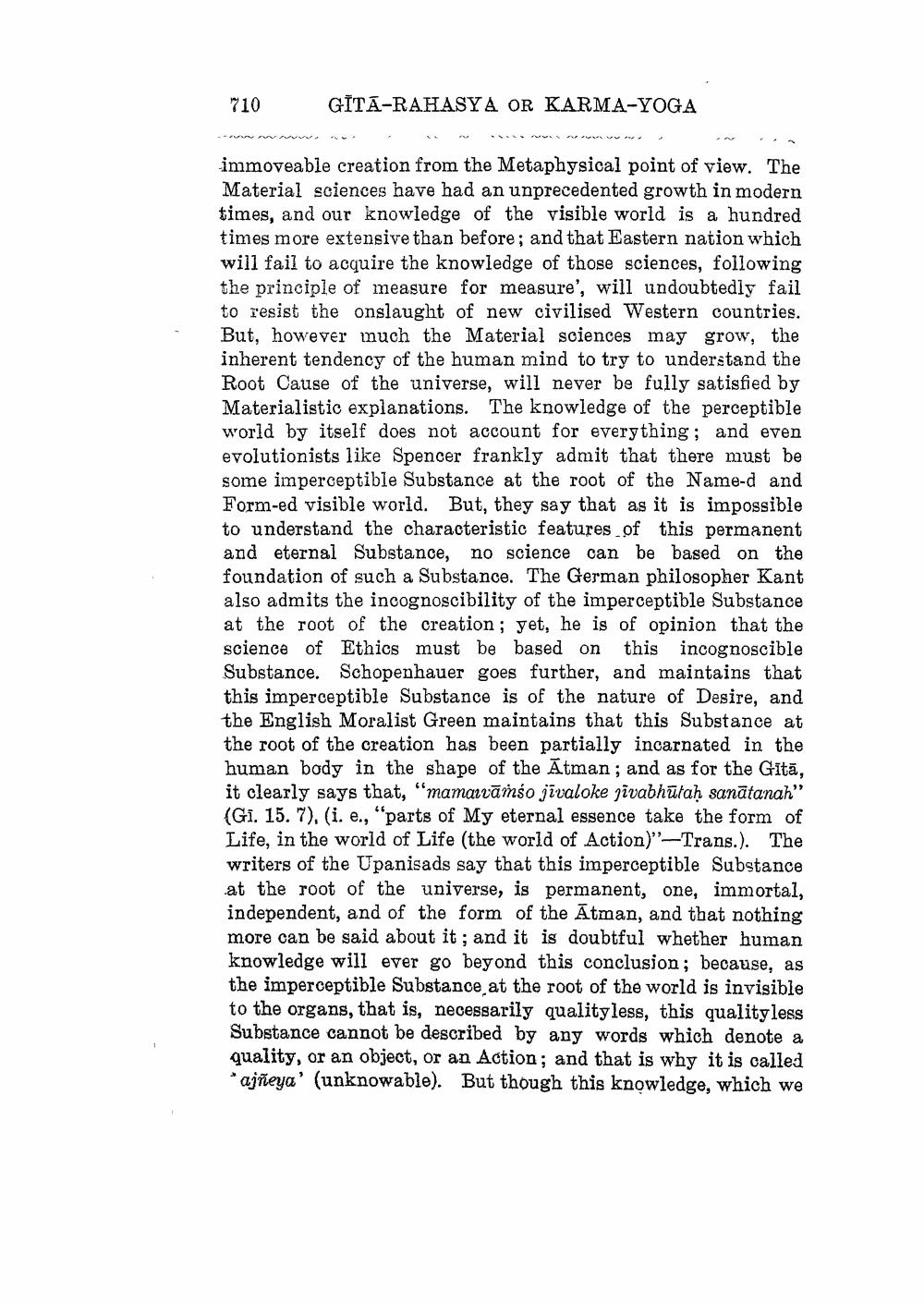________________
710
GITA-RAHASYA OR KARMA-YOGA
immoveable creation from the Metaphysical point of view. The Material sciences have had an unprecedented growth in modern times, and our knowledge of the visible world is a hundred times more extensive than before; and that Eastern nation which will fail to acquire the knowledge of those sciences, following the principle of measure for measure', will undoubtedly fail to resist the onslaught of new civilised Western countries. But, however much the Material sciences may grow, the inherent tendency of the human mind to try to understand the Root Cause of the universe, will never be fully satisfied by Materialistic explanations. The knowledge of the perceptible world by itself does not account for everything; and even evolutionists like Spencer frankly admit that there must be some imperceptible Substance at the root of the Name-d and Form-ed visible world. But, they say that as it is impossible to understand the characteristic features of this permanent and eternal Substance, no science can be based on the foundation of such a Substance. The German philosopher Kant also admits the incognoscibility of the imperceptible Substance at the root of the creation; yet, he is of opinion that the science of Ethics must be based on this incognoscible Substance. Schopenhauer goes further, and maintains that this imperceptible Substance is of the nature of Desire, and the English Moralist Green maintains that this Substance at the root of the creation has been partially incarnated in the human body in the shape of the Atman; and as for the Gitā, it clearly says that, "mamarvāmso jivaloke pivabhūtaḥ sanātanah" (Gi. 15. 7), (i. e., "parts of My eternal essence take the form of Life, in the world of Life (the world of Action)"-Trans.). The writers of the Upanisads say that this imperceptible Substance at the root of the universe, is permanent, one, immortal, independent, and of the form of the Ātman, and that nothing more can be said about it, and it is doubtful whether human knowledge will ever go beyond this conclusion; because, as the imperceptible Substance at the root of the world is invisible to the organs, that is, necessarily quality less, this qualityless Substance cannot be described by any words which denote a quality, or an object, or an Action; and that is why it is called ajñeya' (unknowable). But though this knowledge, which we




